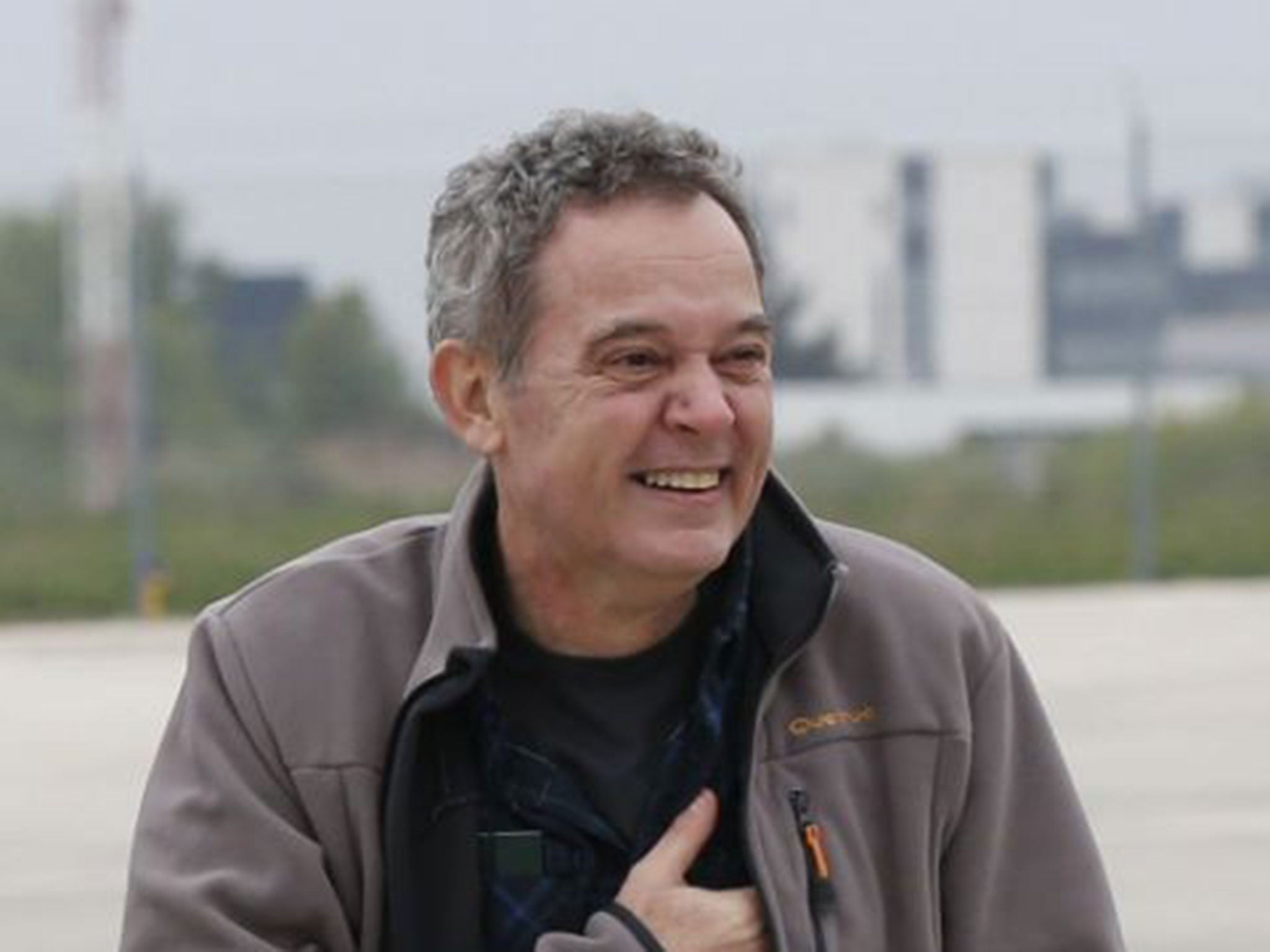James Foley: I know the identity of Isis killer 'John', says French journalist
Former hostage’s disclosure boosts confidence that masked British murderer known as ‘John’ can be identified

Your support helps us to tell the story
From reproductive rights to climate change to Big Tech, The Independent is on the ground when the story is developing. Whether it's investigating the financials of Elon Musk's pro-Trump PAC or producing our latest documentary, 'The A Word', which shines a light on the American women fighting for reproductive rights, we know how important it is to parse out the facts from the messaging.
At such a critical moment in US history, we need reporters on the ground. Your donation allows us to keep sending journalists to speak to both sides of the story.
The Independent is trusted by Americans across the entire political spectrum. And unlike many other quality news outlets, we choose not to lock Americans out of our reporting and analysis with paywalls. We believe quality journalism should be available to everyone, paid for by those who can afford it.
Your support makes all the difference.A French journalist held prisoner for months with the murdered American James Foley has claimed he has a “rough” idea as to the identity of the suspected British killer.
Didier François, a reporter who was released from captivity earlier this year, said the video of the suspected London-born jihadist known as “John” speaking over Mr Foley’s last moments brought back difficult memories of being chained up in the dark with the journalist.
In an interview on French radio, Mr François also claimed the American was singled out for beatings by his captors from Isis (which styles itself Islamic State), the extreme terror organisation that now controls large swathes of Syria and Iraq.
He said the terrorists hit out when they searched Mr Foley’s computer and found pictures of his brother, who works for the US Air Force.
Mr François, 53, spoke out as the US joined Scotland Yard in the international manhunt for “John”, and American fighter jets launched six air strikes on an Isis stronghold near the Mosul dam in northern Iraq.
Eric Holder, the US Attorney General, revealed that the Department of Justice had approved an “open criminal investigation” into the death of Mr Foley, who is thought to have been killed by a gang of three British terrorists known as 'The Beatles', who are guarding Western hostages for Isis near Naqqa in Syria.
At a press conference in Washington, Mr Holder said: “Those who would perpetrate such acts need to understand something. This Justice Department, this Department of Defence, this nation – we have long memories and our reach is very wide. We will not forget what happened, and people will be held accountable, one way or the other.” Scotland Yard and the security services are still working to identify the killers and explore ways in which they can be brought to justice.
Richard Barrett, who was MI6’s head of counter-terrorism at the time of the 11 September attacks, said he remained hopeful that the killers could be located and brought back to Britain for trial. “They will be able to identify him, although there are four or five hundred people who have gone from all over the UK many of them have made their presence there known,” he told BBC Radio 4’s Today programme.
“I think the community will be able recognise this person and I am sure many will be keen to do so. He will have had many acquaintances and friends in the UK and those people will wish to see him brought to justice.”
“This is probably a relatively young man and he has a relatively long life ahead of him, perhaps, if he doesn’t get killed quickly in Iraq or Syria… therefore sooner or later he is going to be vulnerable to arrest and brought before the courts. I don’t think anyone is prepared to forget this sort of crime and, therefore, the long arm of justice will eventually catch him.”
Meanwhile, The Independent has learned that the numbers of “Syria-related” arrests, including alleged offences such as terrorist financing, preparation of acts to commit terrorism and attending a terrorist training camp, have soared over the past six months. Figures obtained from Scotland Yard show 69 such arrests in the first half of 2014 – compared with just 25 for the whole of the previous year.
Helen Ball, the senior national co-ordinator of the Metropolitan Police, said: “We want to prevent young and vulnerable people becoming involved in travelling to Syria. We would urge anyone who is worried about relatives or friends to get in touch with us and help us prevent tragedies.”
Following the international outcry over Mr Foley’s murder, his former co-hostage Mr François was moved to speak out publicly over his experiences. When asked on the French radio station Europe 1 whether he knew the identity of “John”, he replied: “Recognised is a very big word, but I see roughly who it is.”
The Frenchman said he spent eight months with Mr Foley, enduring most of that time in underground cells with no natural light. He left with three other French hostages when they were released by their captors in April. The men were found blindfolded and handcuffed on the Syrian border by Turkish soldiers.
Mr François said the captors had threatened Mr Foley and another American hostage, Steven Sotloff, with reprisals if he spoke publicly about the situation following his release. He said he was told by the terrorists: “If you make public the fact they are being held or that you were together, reprisals will follow against them. Their exact words were: ‘They’ll be punished’.”
Paying tribute to Mr Foley, Mr François said: “He was an extraordinary guy – a companion in imprisonment who was very agreeable, very solid.”